Time is one of the most valuable resources today. Creating a compelling presentation requires significant effort, which many professionals cannot afford. From designing slides to structuring content and finding relevant visuals, the process often involves numerous repetitive tasks.
Fortunately, artificial intelligence (AI) has changed the game. It automates many aspects of presentation creation and reduces workload to an extent we haven’t dreamed of.
AI-powered tools can generate slides, suggest design layouts, summarize content, and even create visuals, allowing users to focus on delivering their message effectively.
In this article, we’ll explore how AI can streamline the process of creating presentations and check out some available tools that perform tedious tasks for us.
AI Technologies and Tools for Presentation Automation
AI-driven presentation tools leverage machine learning, natural language processing (NLP), and computer vision to automate different aspects of the slide creation. Here are some of the key tools that can help:
1. AI-Powered Slide Generation
AI-powered slide generation automates the process of creating presentations by analyzing content and structuring it into visually coherent slides. These tools utilize machine learning algorithms to determine the best layout, color scheme, and font choices.
Beautiful.ai: Uses AI to suggest design improvements and ensure consistency in slide layouts. A plethora of templates ensures that everyone can find the one suitable to their purpose.
From B2B marketing plan

to competitor analysis report

or a startup pitch deck.

Tome.app: Generates slides automatically from text input, reducing the need for manual formatting. It specializes in sales and marketing and can effectively assist in presenting analytical data. The pitch deck template below is a good example.

Presentations.AI: Assists with slide creation by offering AI-generated templates and designs. It uses ChatGPT and can create PPTs, infographics, charts, timelines, project plans, reports, and product roadmaps.
Here are several slides from a company performance overview template.

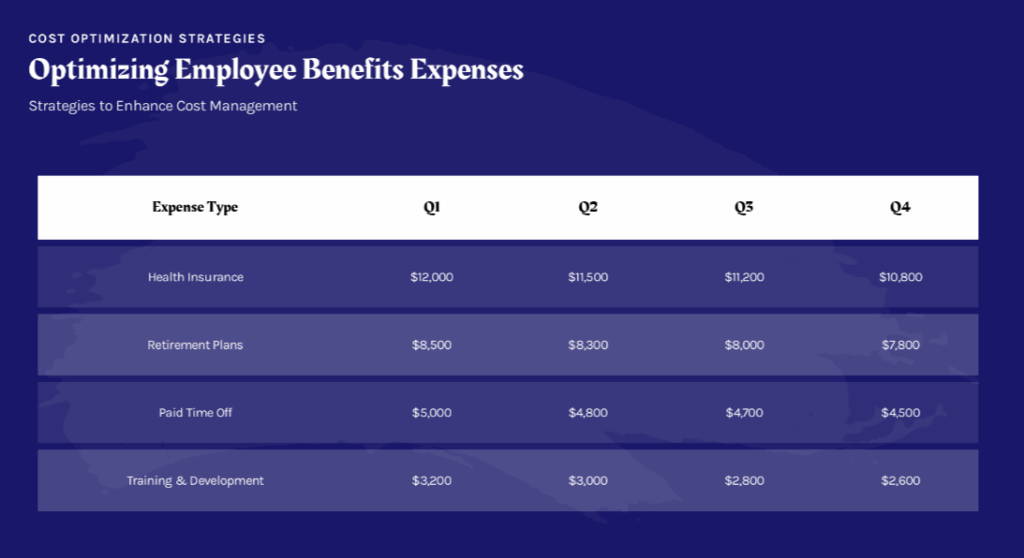
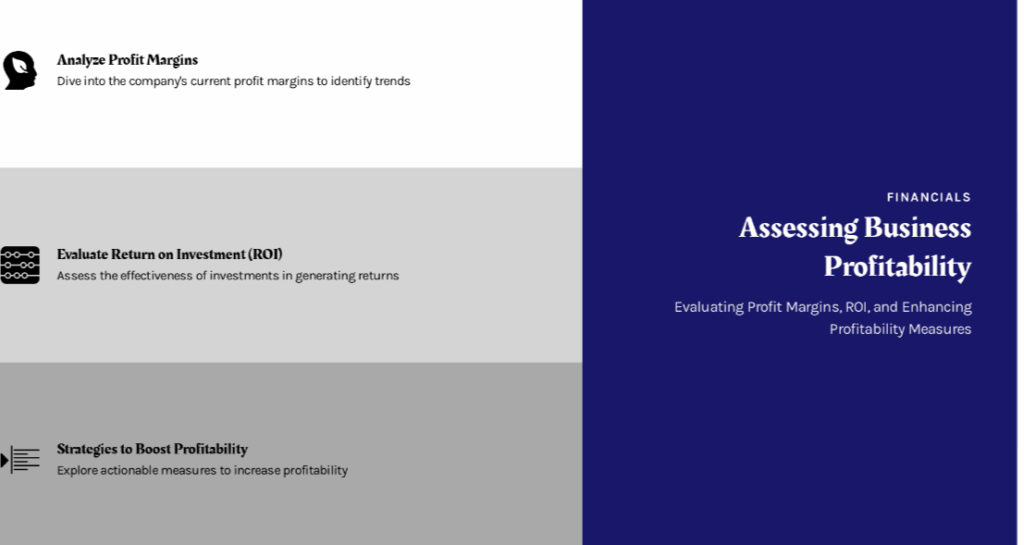
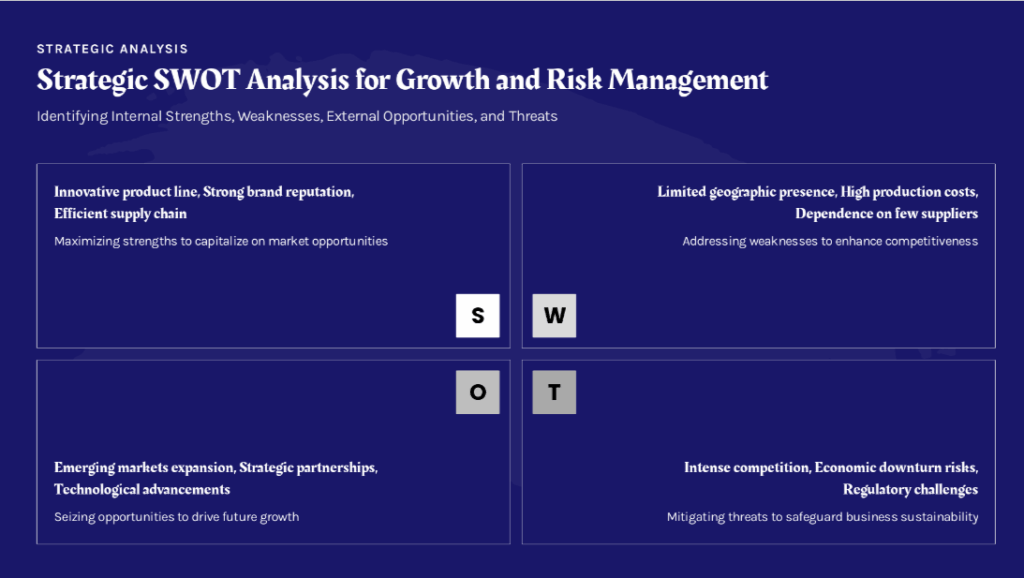
Wonderslide: Provides AI-powered design suggestions, including color schemes and layouts. After a user uploads a PowerPoint draft, AI handles the visual enhancement.
Wonderslide offers an extensive library and can always provide the design that will best suit the content of your presentation.
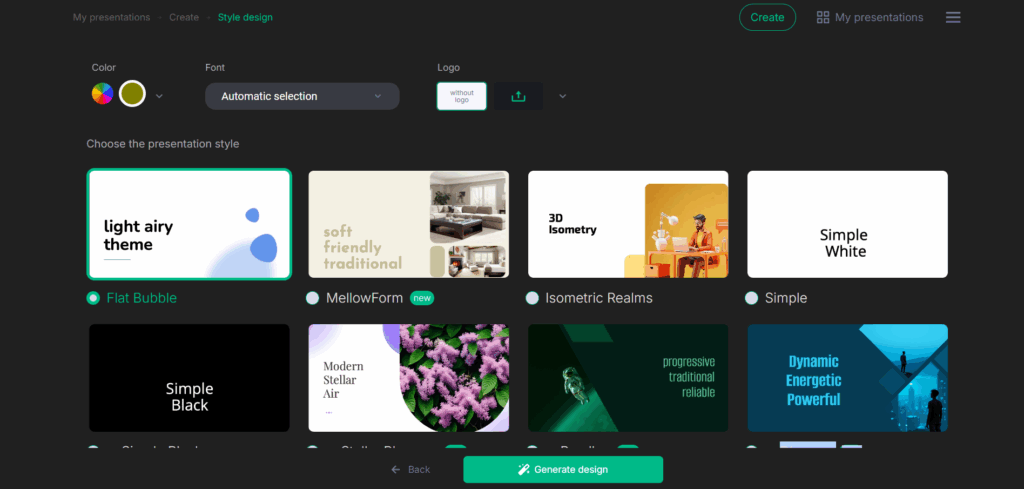
2. Content Optimization and Summarization
This technology helps refine text by summarizing, paraphrasing, or restructuring information for clarity and brevity. AI-driven summarization tools use natural language processing to extract key points, making content more digestible for audiences.
ChatGPT: Can generate concise summaries of large chunks of text to be used in presentations.
Here’s an example. You need to create a presentation on increasing social media engagement for small businesses.
The prompt could be as follows:

A version of the outcome:

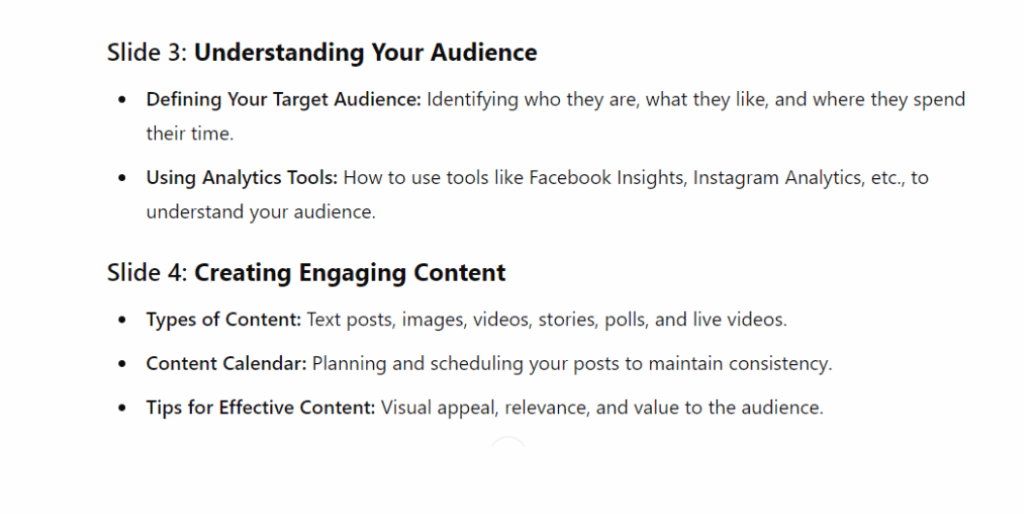
For more detailed information on using ChatGPT in presentations, check out our article on that topic.
QuillBot: Helps rephrase and refine content to improve clarity and readability.
An example of rephrasing a slide content in the presentation about Brazil as a tourist destination:

SummarizeBot: Extracts key points from articles, reports, and documents to generate structured slide content. A very convenient and time-saving tool.
Here’s how it works:

4. AI-Generated Visuals and Media
AI-generated visuals enhance presentations by creating custom images, infographics, and even videos. These tools use deep learning and image synthesis techniques to produce high-quality visuals tailored to the presentation’s theme.
Instead of going through hundreds of stock images, a user gets unique customized images in seconds.
DALL·E and MidJourney: Generate custom images based on text descriptions.
An example of a product presentation with MidJourney offered design.

You can check out our article on using MidJourney in presentation creation to obtain more comprehensive knowledge about AI image generators.
Piktochart: Helps create infographics and visual elements for presentations.
An example of an infographic template.
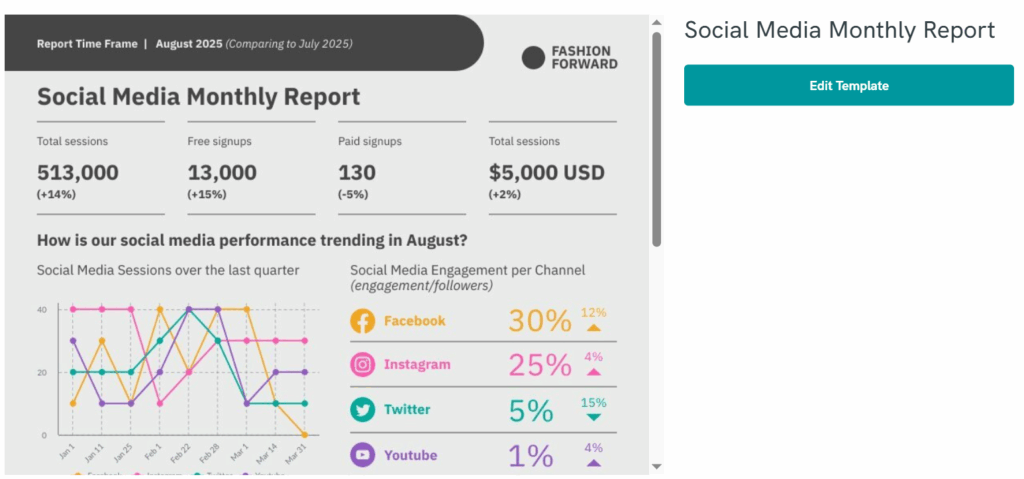
Lumen5: Converts text-based content into engaging presentation videos.
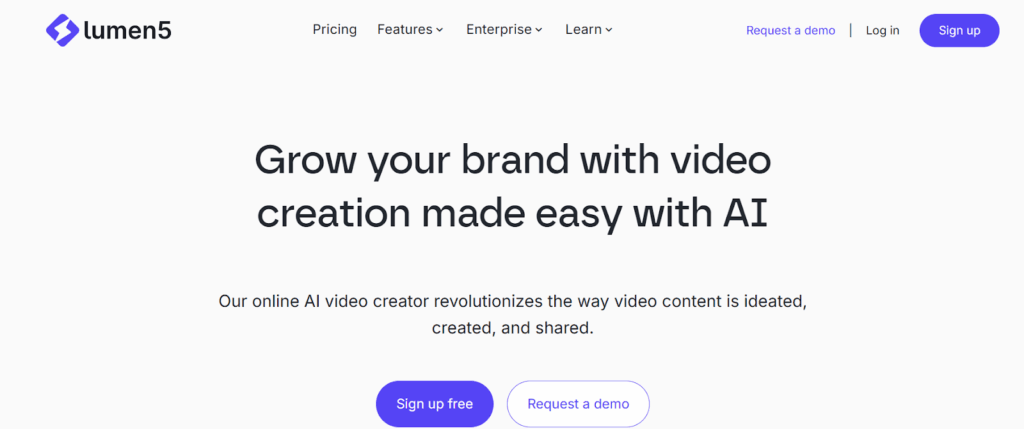
5. Voiceovers and Presentation Delivery Assistance
AI-powered voice synthesis and presentation assistance tools help create professional-sounding voiceovers and improve delivery skills. These tools analyze speech patterns, generate voiceovers, and even simulate human-like avatars for video presentations.
Murf.ai and Speechelo: Convert text into natural-sounding voiceovers for narrated slides.
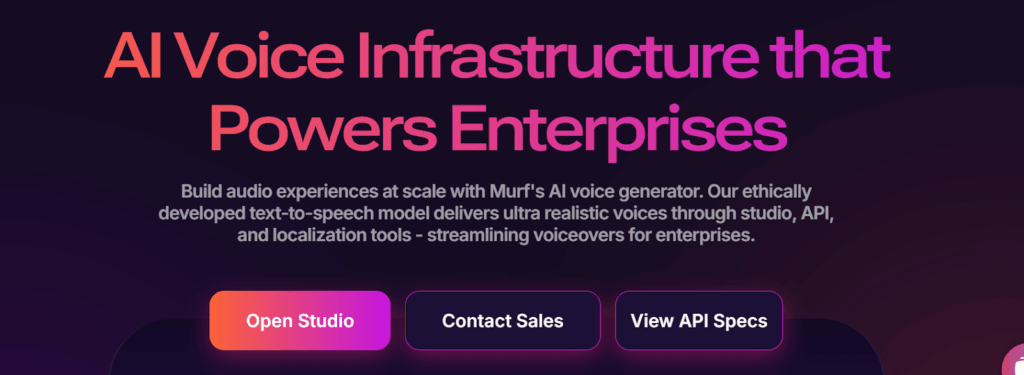
Synthesia: Creates AI avatars that can deliver presentations with lifelike voice and gestures.

Microsoft Speaker Coach: Analyzes speech patterns and provides feedback on pacing, clarity, and tone. An AI coach helps a presenter master their performance.
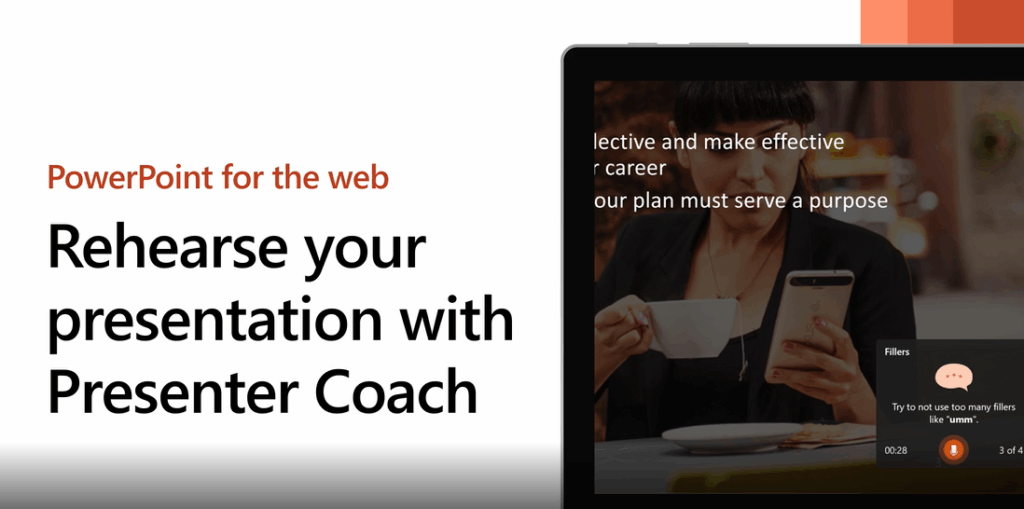
Benefits of Using AI for Automating Routine Tasks
Implementing AI in presentation creation comes with several advantages:
1. Saves Time and Effort
AI can handle tedious tasks like formatting, designing, and summarizing content, allowing users to focus on their core message instead of manual adjustments.
2. Enhances Creativity
With AI-generated design suggestions and visuals, users can explore creative layouts they might not have considered otherwise.
3. Ensures Consistency
AI tools help maintain uniform fonts, colors, and layouts throughout the presentation, ensuring a professional look.
4. Improves Content Quality
AI-driven grammar checkers, content refiners, and summarization tools improve the clarity and impact of the information presented.
5. Increases Accessibility
AI-generated voiceovers and text-to-speech tools make presentations more accessible to audiences with visual impairments or language barriers.
Other Considerations When Using AI for Presentations
While AI can enhance productivity, it is essential to:
- Verify AI-generated content: Ensure accuracy, especially when dealing with data and factual information. AI can fail to provide accurate data.
- Maintain a personal touch: AI can assist with design and content, but human input remains crucial for storytelling and audience engagement.
- Understand tool limitations: Some AI-generated designs may require tweaking to align with specific branding or message goals.
Conclusion
AI is revolutionizing the way presentations are created, including automation of routine tasks and optimization of the workflow.
From generating slides and summarizing content to designing layouts and providing voiceovers, AI-powered tools can significantly reduce the time and effort involved in crafting compelling presentations.
By leveraging these tools, professionals, educators, and business leaders can focus more on delivering impactful messages rather than spending hours on manual slide creation.
Presenters can delegate routine tasks to AI and focus on delivering a compelling and engaging message.